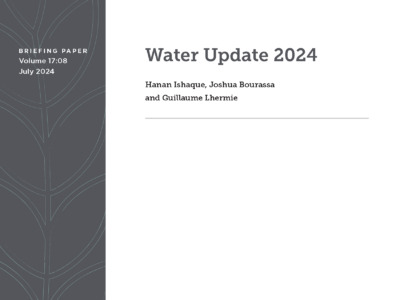Policy Briefs
The Water Wealth in Agriculture event was hosted in October 2022 in conjunction with the University of Calgary’s Simpson Centre, Schulich School of Engineering, Faculty of Science, and the University of Saskatchewan’s Global Institute for Water Security. It invited a diverse set of expert stakeholders from industry, government, and research (see annex) to discuss sustainable water management for agriculture. This paper summarizes the opinions and suggestions of the diverse interest groups attending the event about recent and current action on sustainable water practices.
Tuesday, July 16, 2024
Hanan Ishaque, Joshua Bourassa and Guillaume Lhermie

